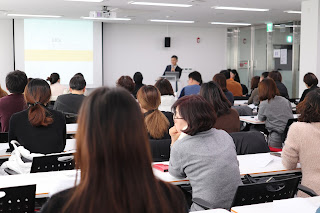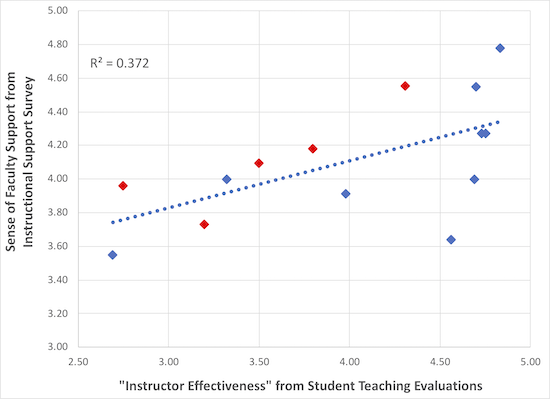by Jennifer VanAntwerp, February 16, 2022
Women and their work are valued less in our society. This cultural bias can be measured in the very way that we use, and change our use of, language in describing the types of work we do in STEM.
It's no secret that pushing STEM (science, engineering, technology, and math) participation is a hot topic in the U.S. What might be less well-recognized is that not all STEM is considered to be equal – and this has real (and negative) consequences for women.
New research by psychologists Alysson Light, Tessa
Benson-Greenwald, and Amanda Diekman has revealed biases in
how we describe, perceive, and value the various STEM fields. Study
participants from all walks of life were presented with brief (and true) descriptions
of different STEM fields (including some physical sciences, some social
sciences, and some engineering). However, none of the descriptions were identified
by name. In addition, a gender composition for the unnamed field was provided –
but participants were randomly assigned to groups that were either told the
field just described included mostly males or told that that same field was majority
female. They were then asked to categorize each field as a “soft science”
or a “hard science.”
It turned out that the exact same description was significantly
more likely to be labeled by participants as a soft science if the respondent
believed the field to include more women than men. The opposite was true for
majority men and the hard science label – regardless of which discipline was
actually being described. In other words, there is a strong cultural bias that
women do something called soft science and men do something called hard
science.
Wikipedia tells us that "hard and soft science are colloquial terms used to compare
scientific fields on the bases of perceived methodological rigor, exactitude,
and objectivity." This naturally sets up soft sciences as being inferior
to hard sciences; it implies a societal judgement that soft science is pseudoscience
– less difficult, less reliable, less valuable. In fact, additional results
from this same research study make it quite clear how these perceived soft/hard
sciences differences are valued. When Light and colleagues asked participants to evaluate the value
of a discipline based only on its label as a hard or soft science, the soft
sciences lost on every single measure. As the study authors conclude, “the
general category of soft sciences is perceived as less rigorous, less
trustworthy, and less worthy of funding than hard sciences.”
But why does the lower valuation of soft sciences matter to
engineers? Clearly engineering disciplines are firmly in the hard sciences
camp, right? Well, it matters because at a subconscious level, women are associated
with these less respected and less valued fields of work. The spillover from
this is that at a subconscious level, all women suffer a blow to their
credibility, status, and contribution as members of STEM fields – including those
women in engineering.
So perhaps it is no surprise, then, that women engineers are
2.9 times as likely as
men engineers to report “I have to repeatedly prove myself to get the same
level of respect and recognition as my colleagues” and 2.8 times more likely than
men to agree that “After moving from an engineering role to a project
management/business role, people assume I do not have technical skill.” (And unfortunately, research also has
demonstrated that engineers place more value on technical skills than
communication, planning, managerial, or similar essential skills.) No surprise
that women working in STEM are less likely
than men to have their ideas endorsed by leadership or green-lighted for development.
They are judged, whether explicitly or implicitly, to be less of a “fit” for more “rigorous” or “hard science” work. And in some ways, it might not matter even if women do manage to get assigned to these more valued job assignments. Simply because more women are doing a job, it can come to be less valued. Yet one more example of women engineers facing the “damned if you do; damned if you don’t” barrier.
Have you had a similar experience to Our Words do Matter or would you like to share a story, concern, or experience that relates to what you have just read? Click here to share (all responses are private and kept confidential). |
|
|
Jennifer J. VanAntwerp is a professor of
chemical engineering at Calvin University in Grand Rapids, Michigan. She
researches how engineers learn, work, and thrive, beginning in college and
extending throughout their professional careers. |









